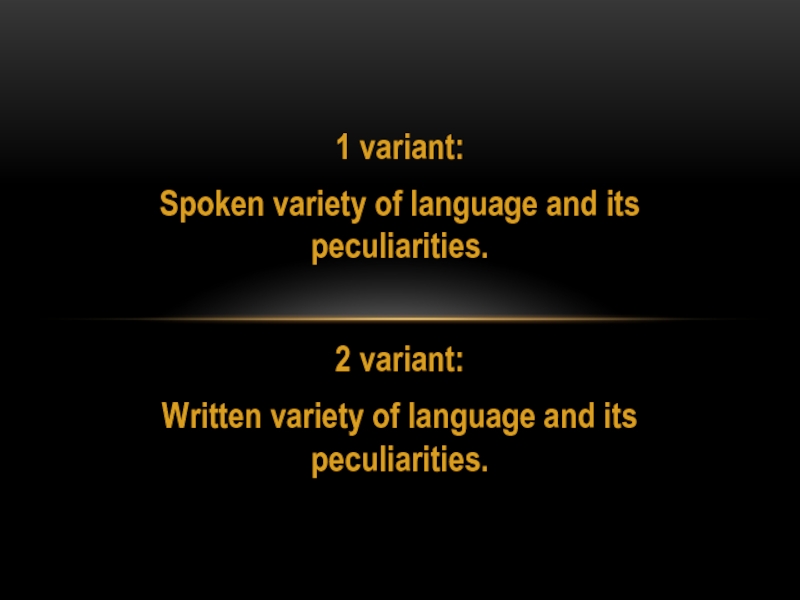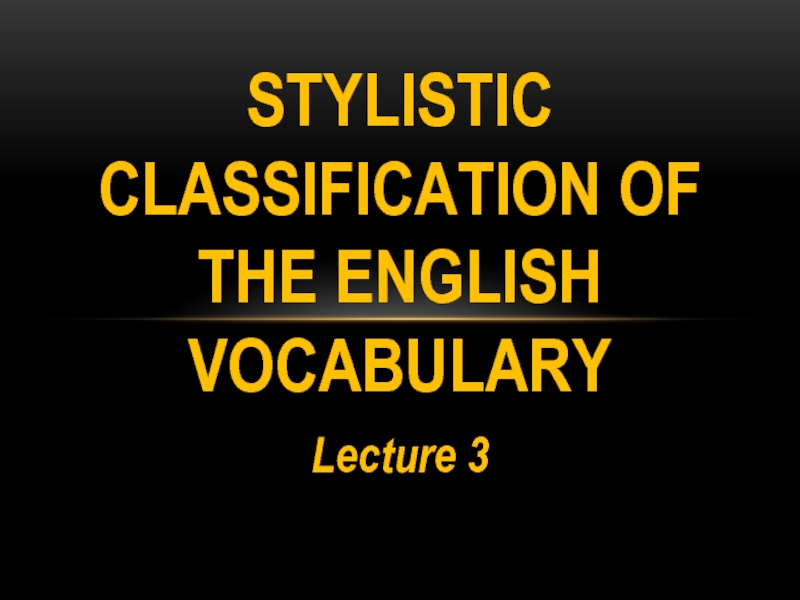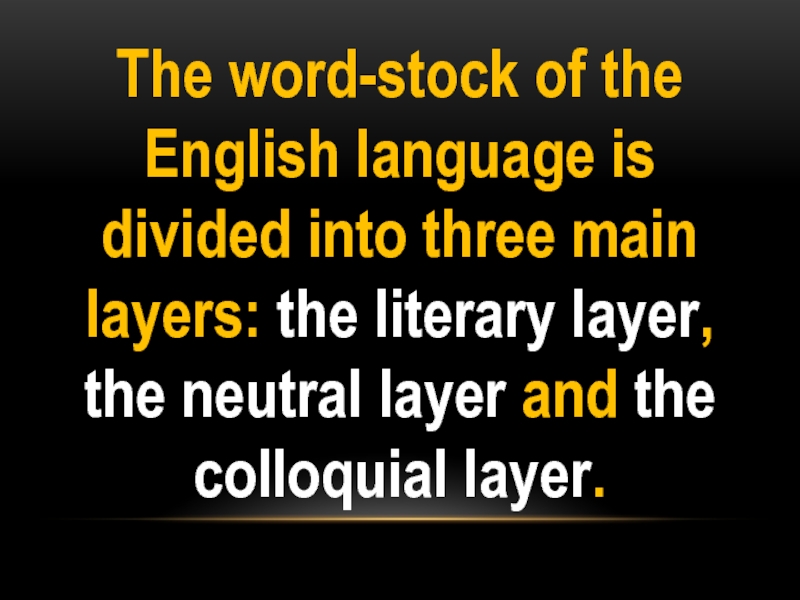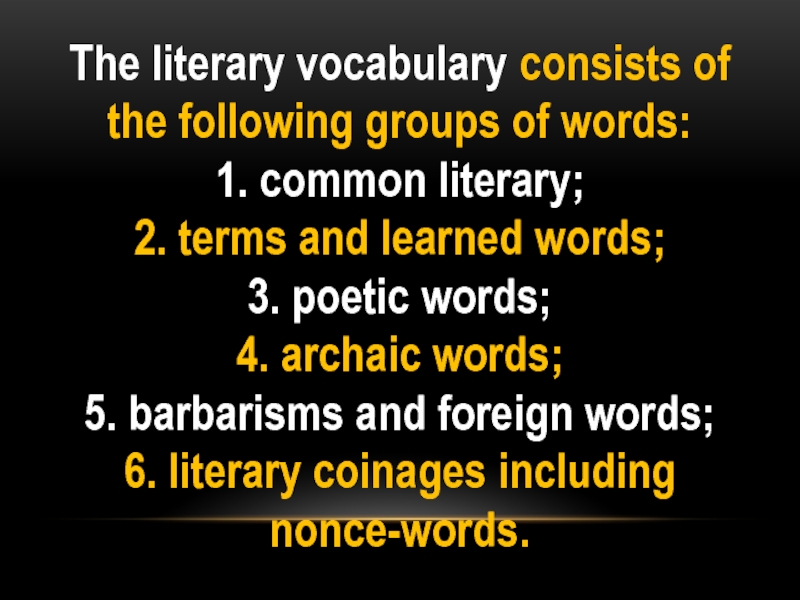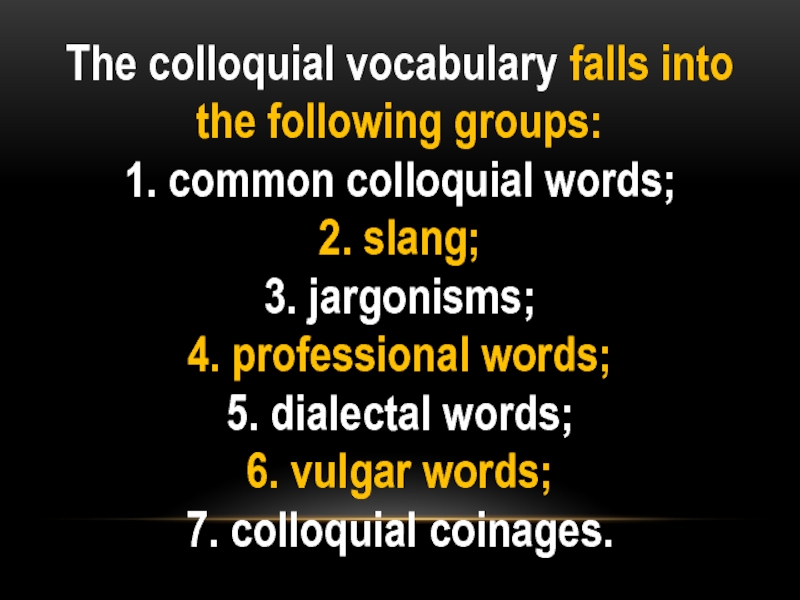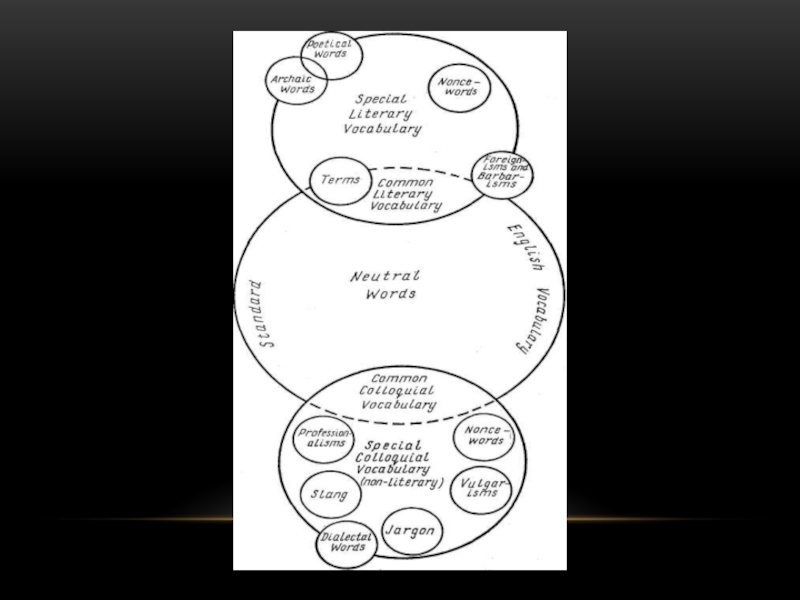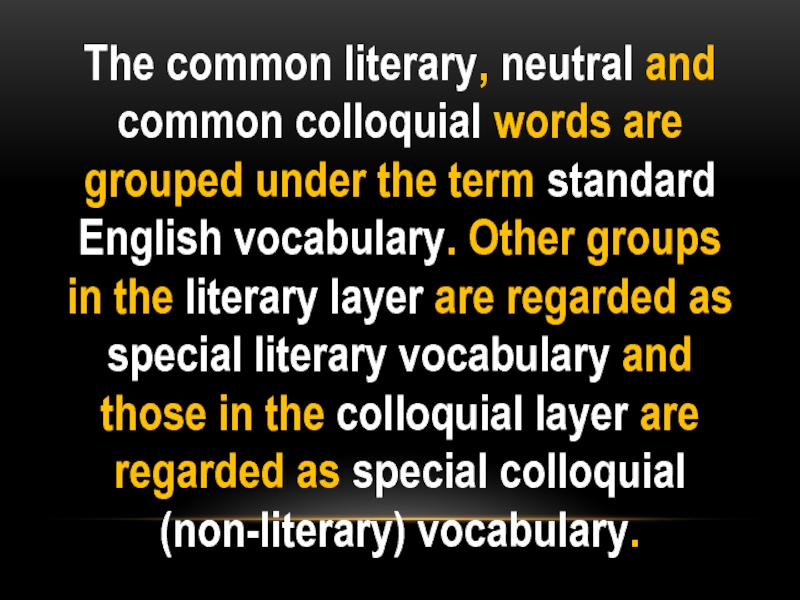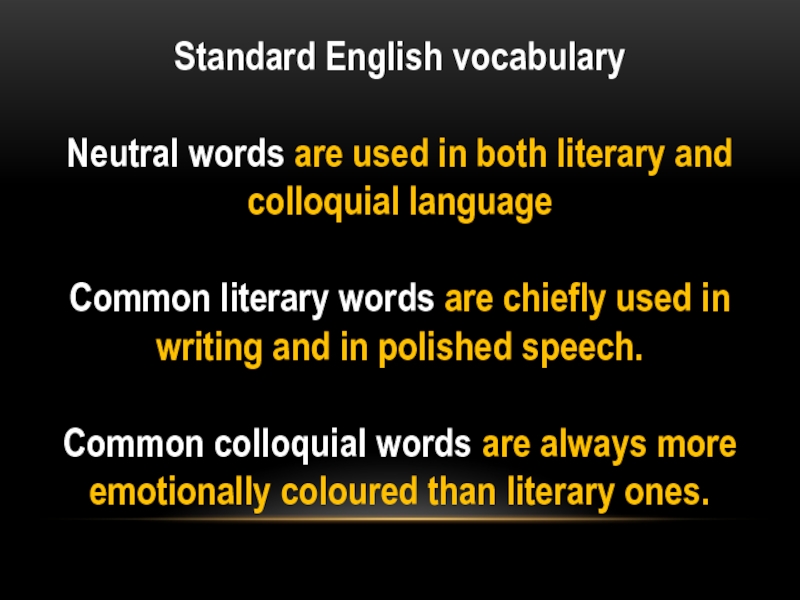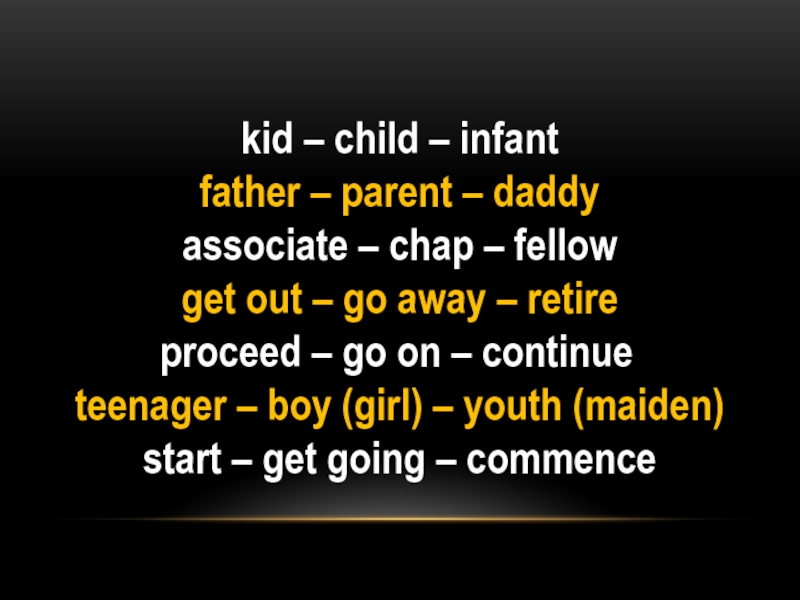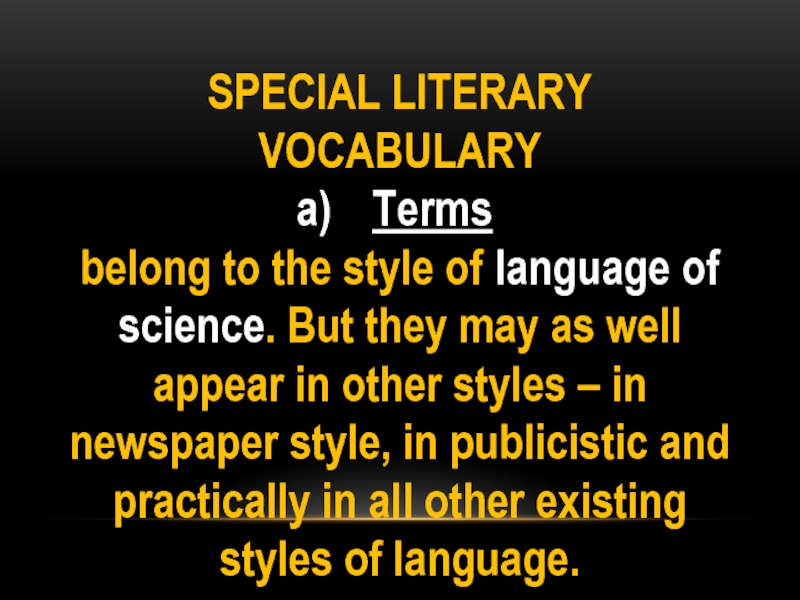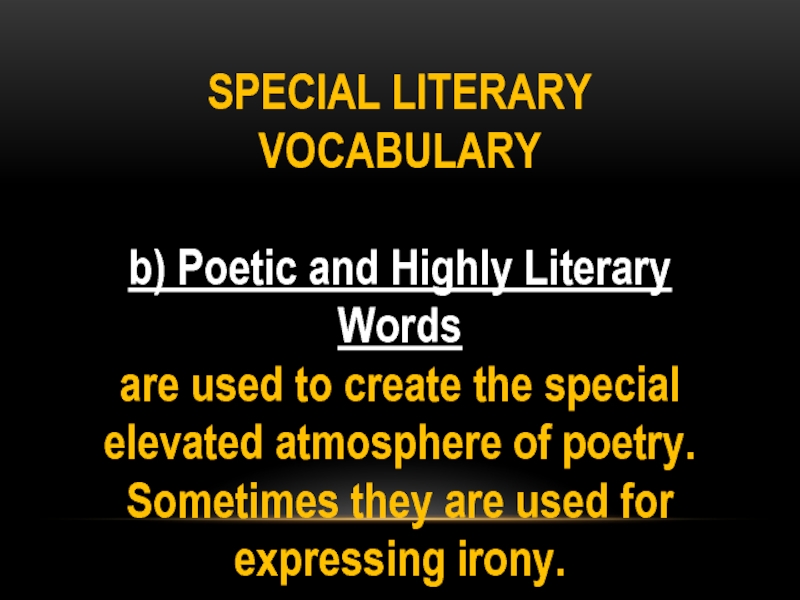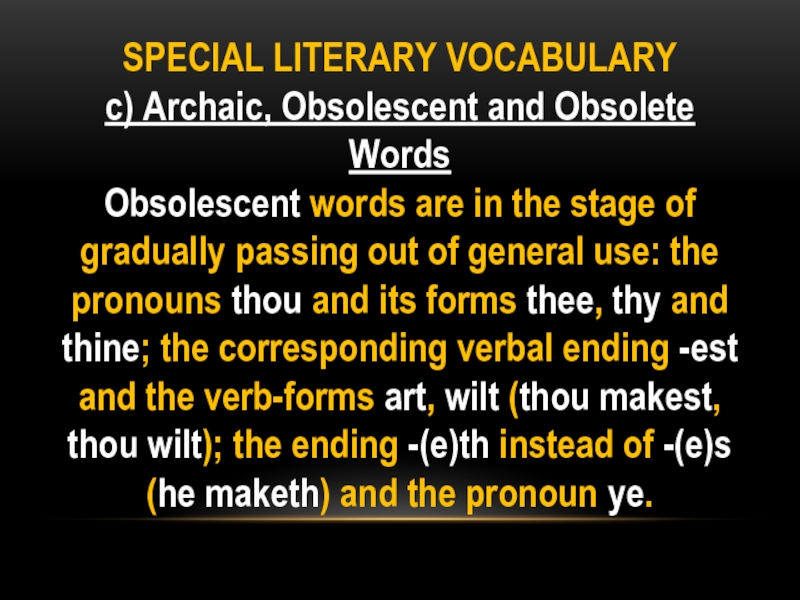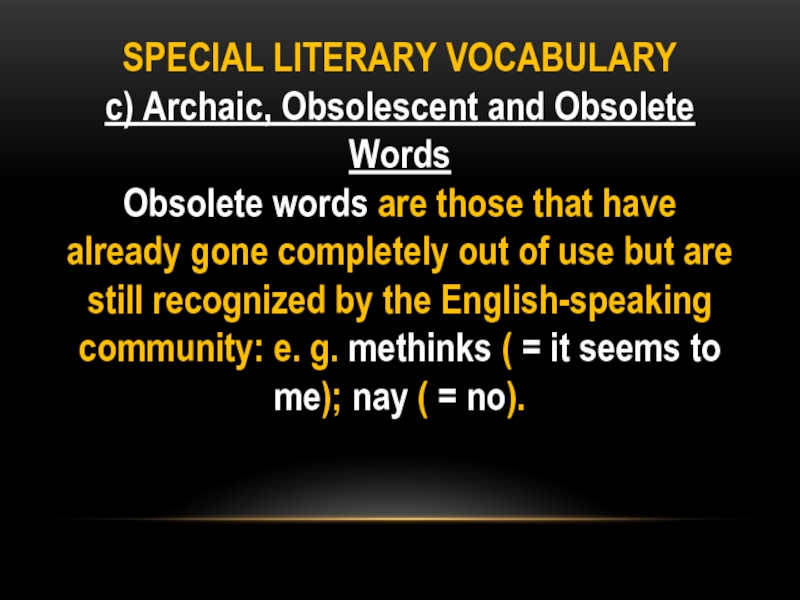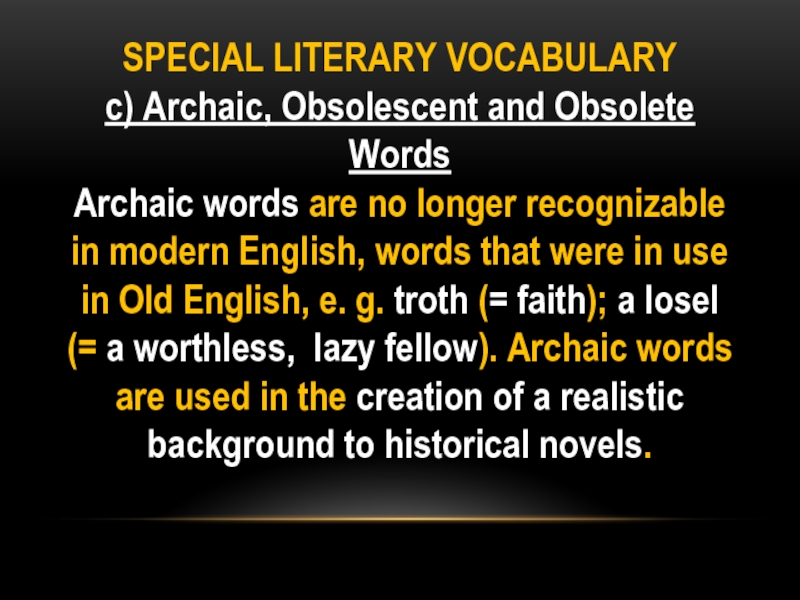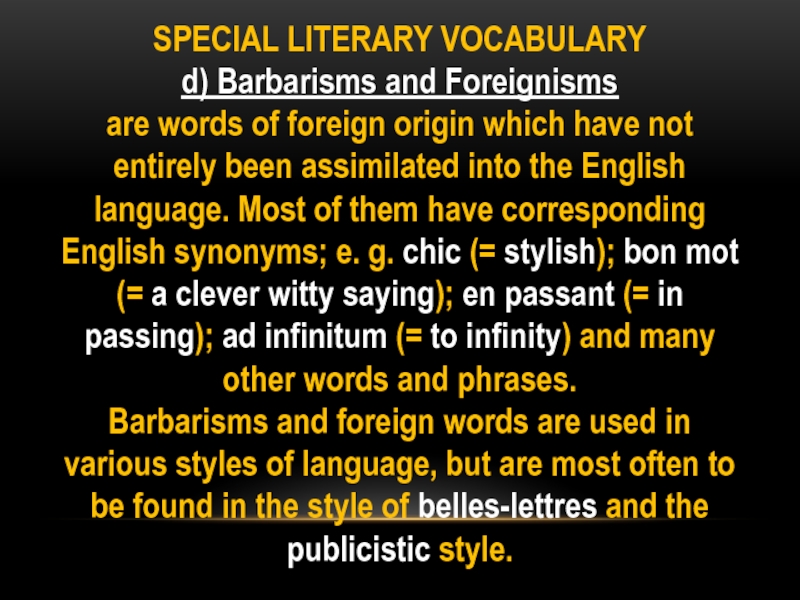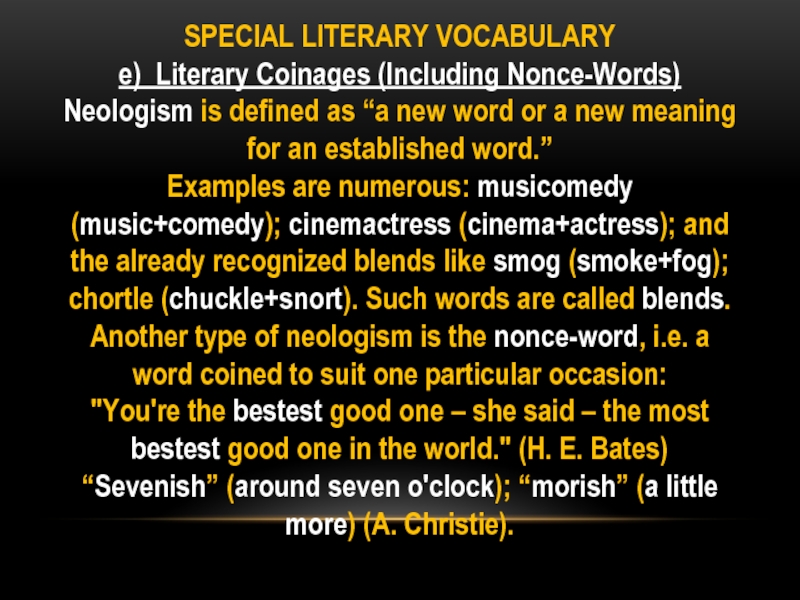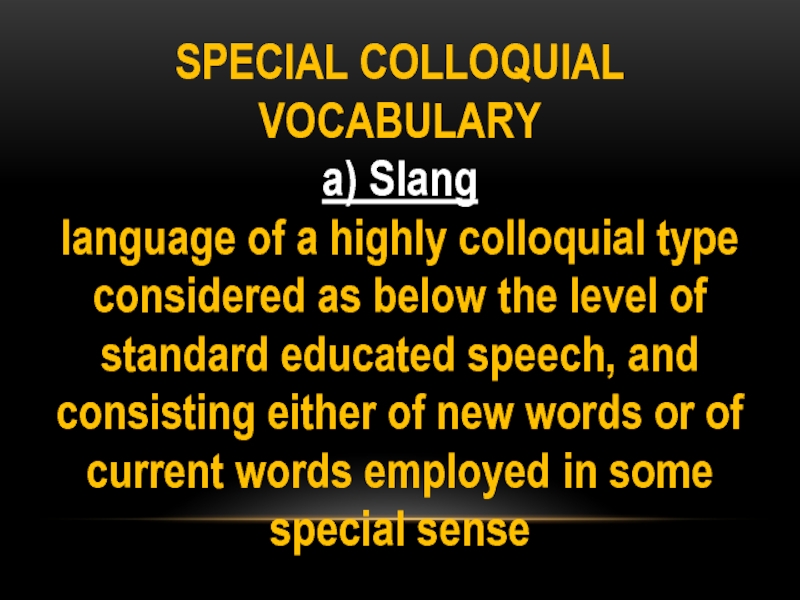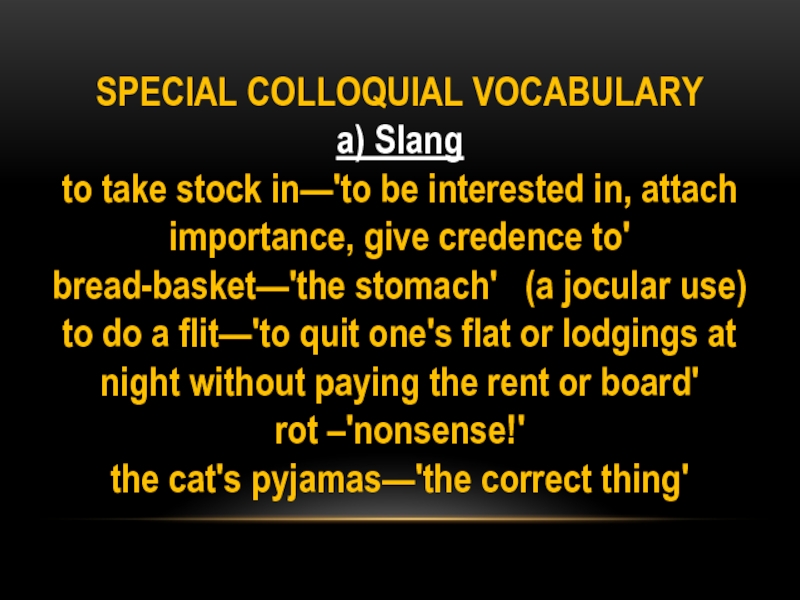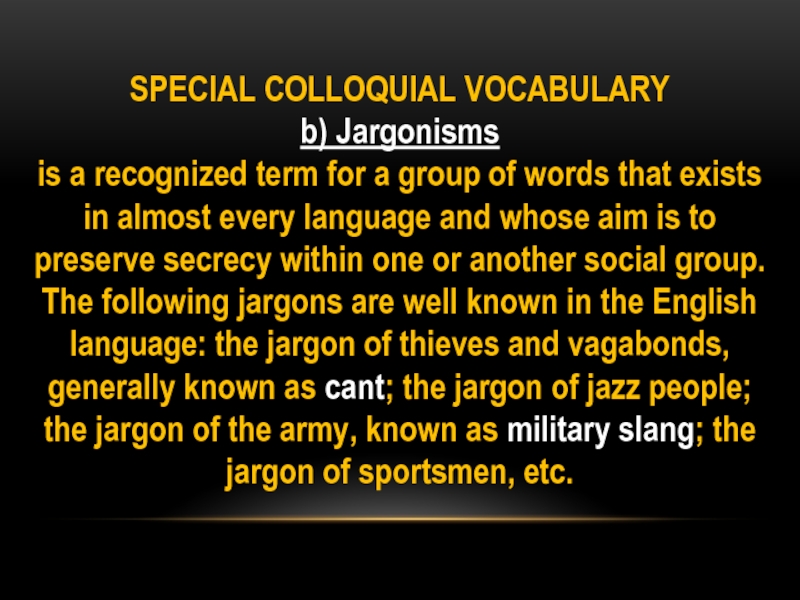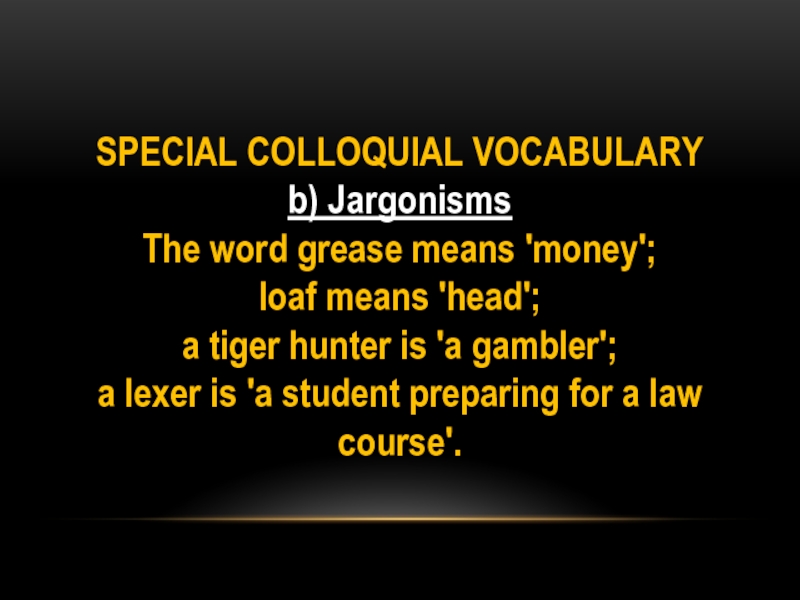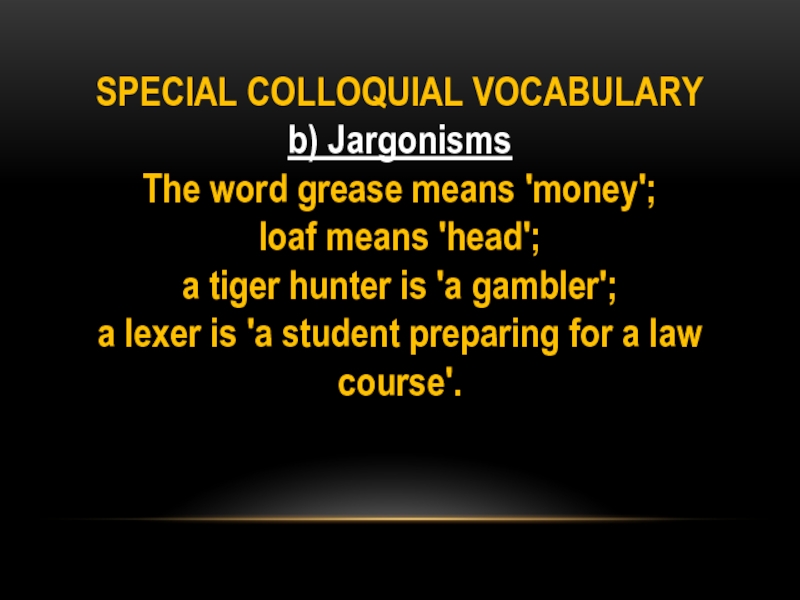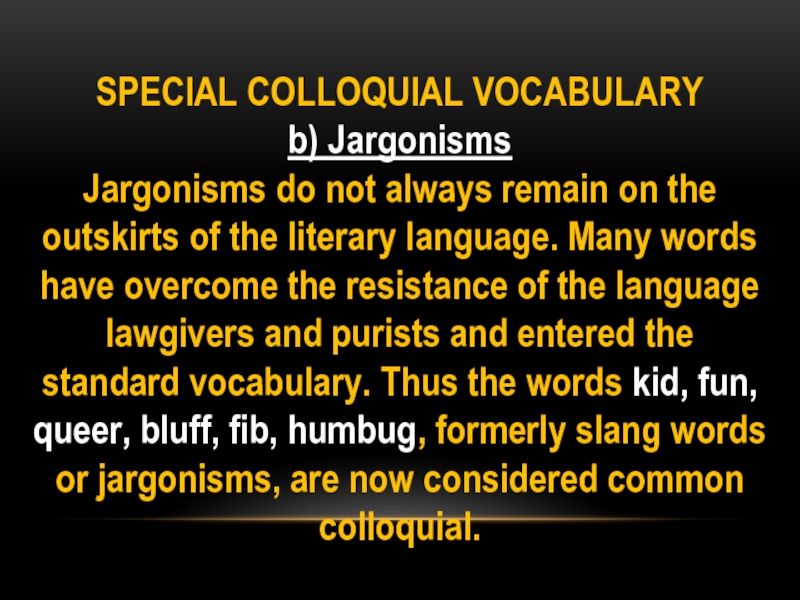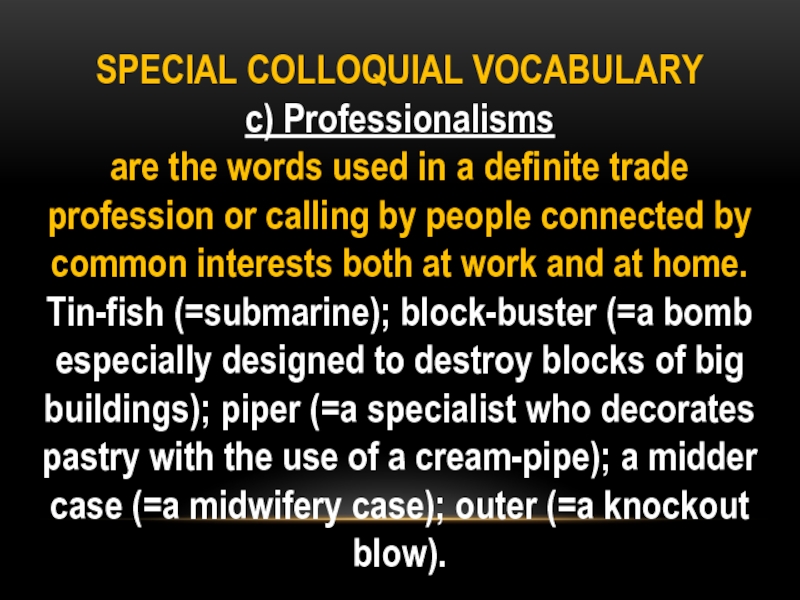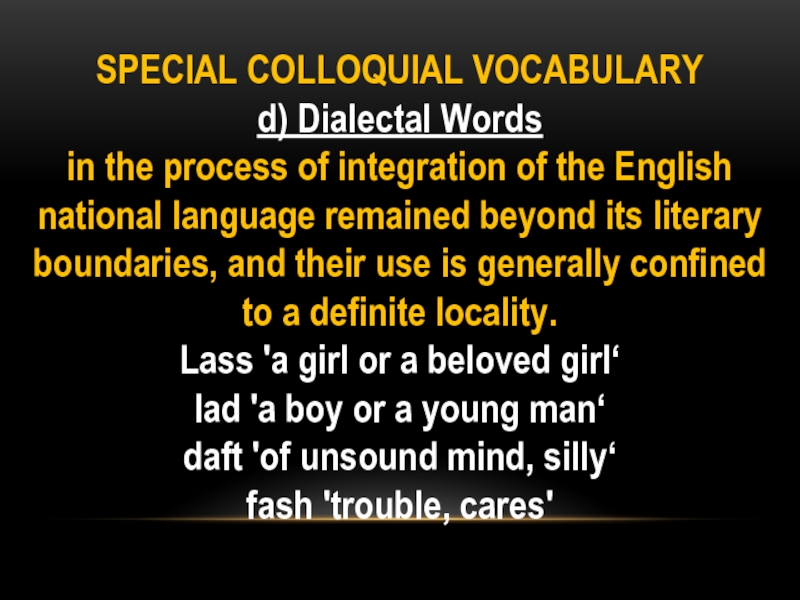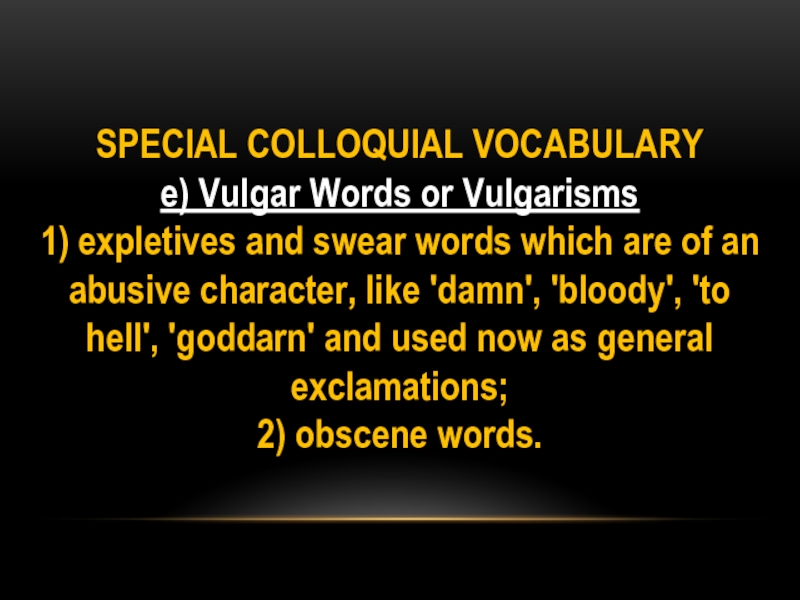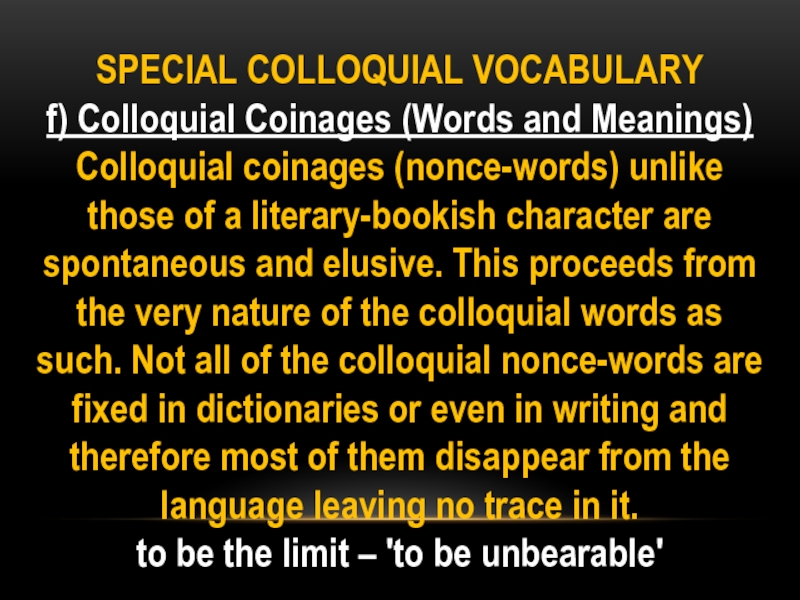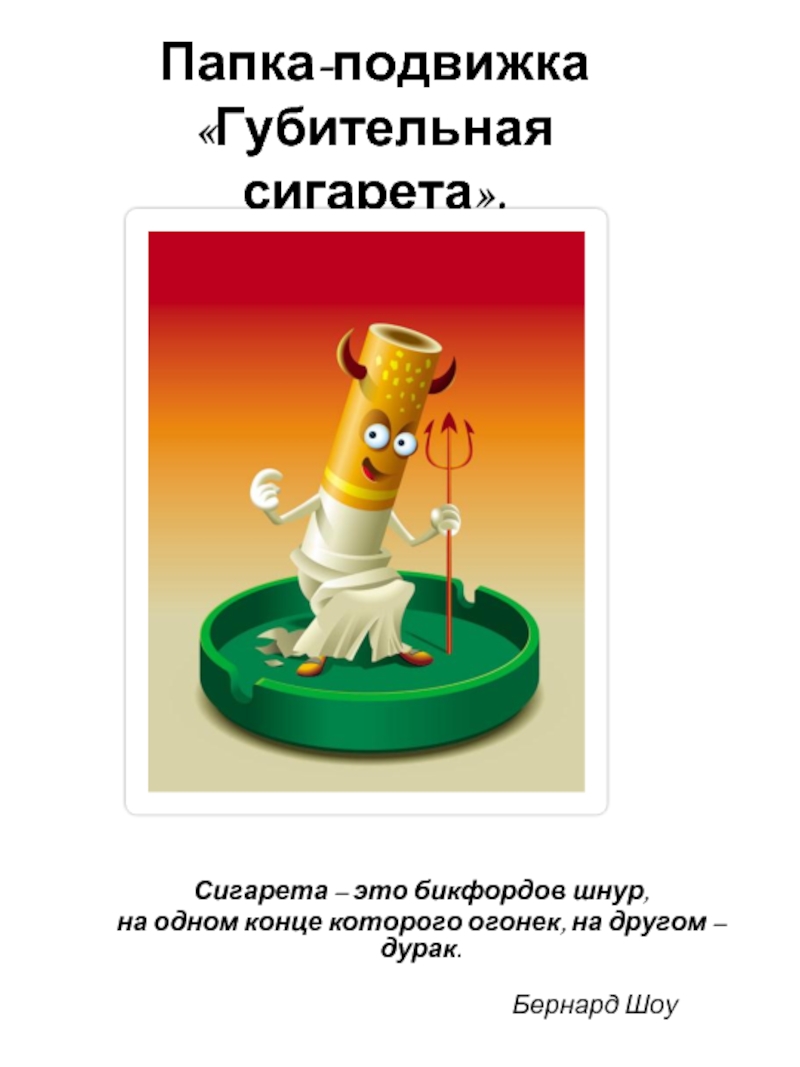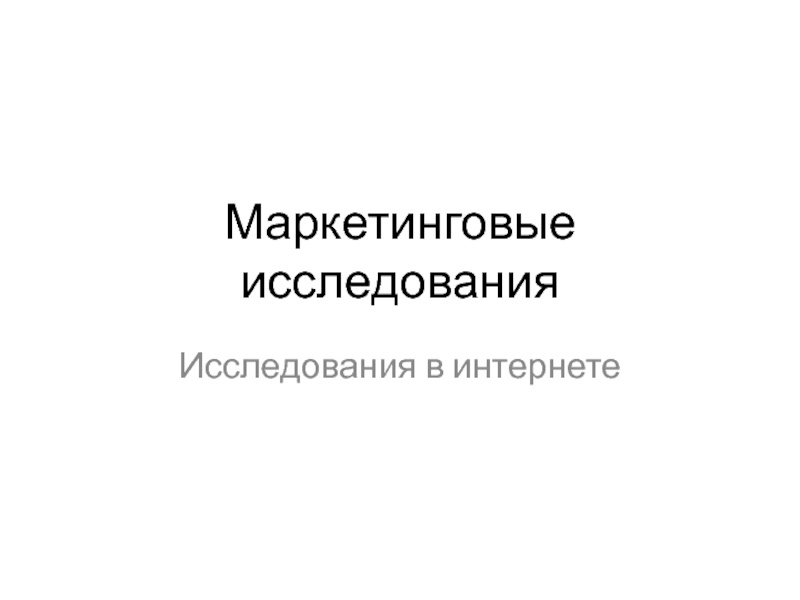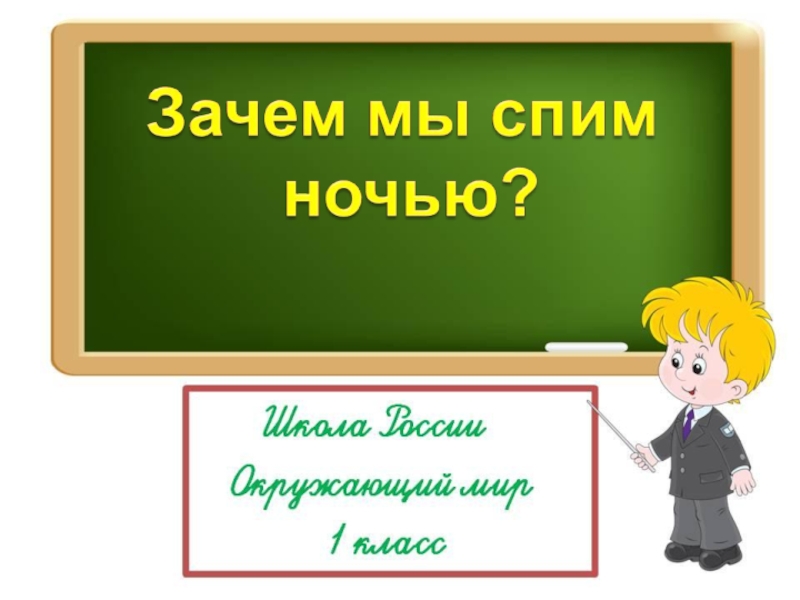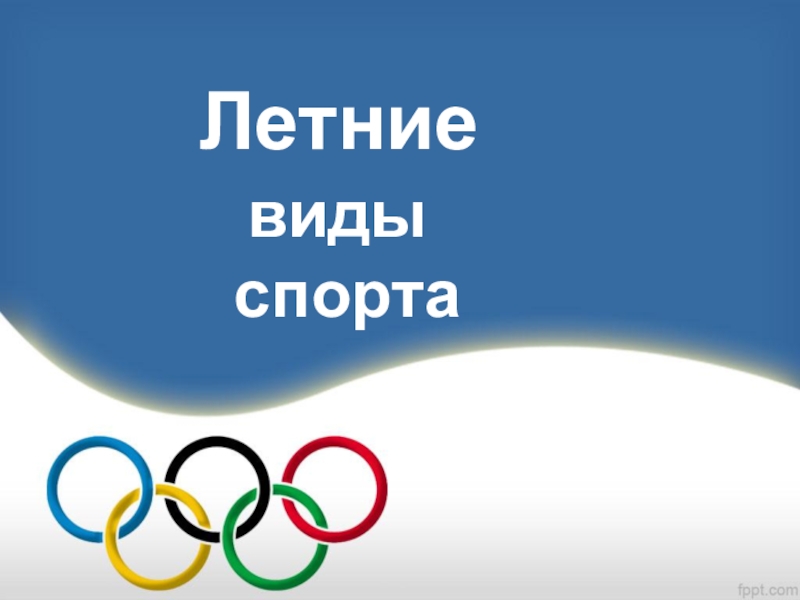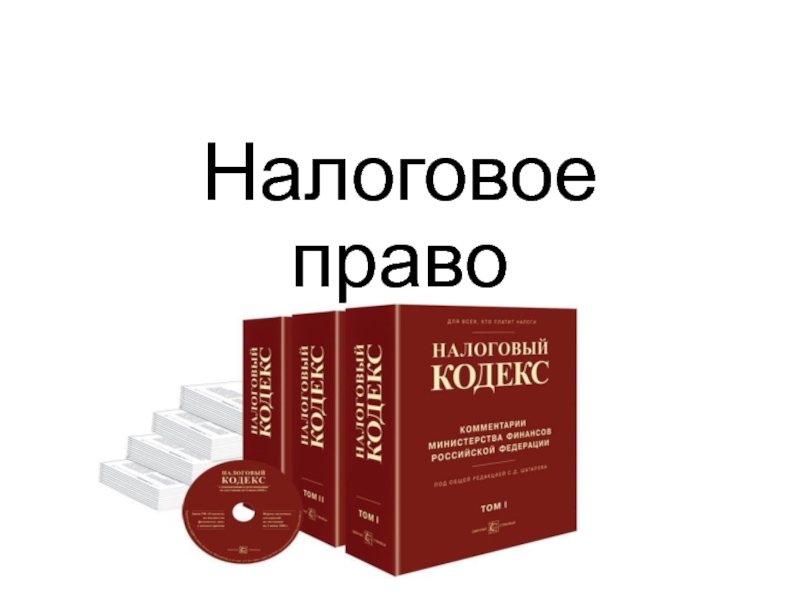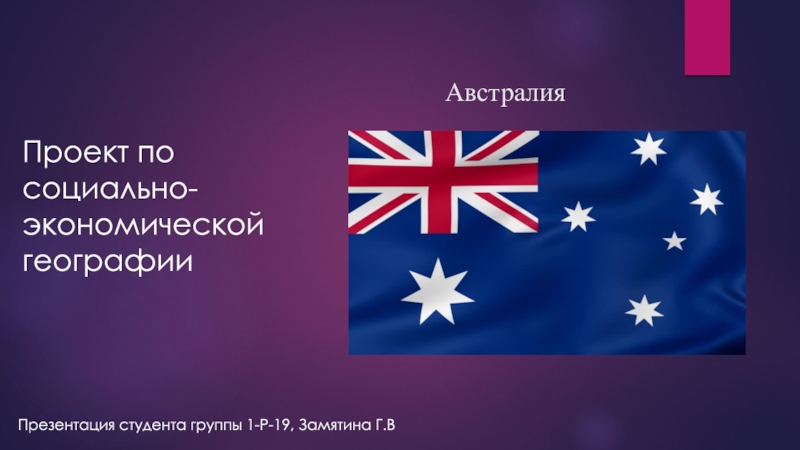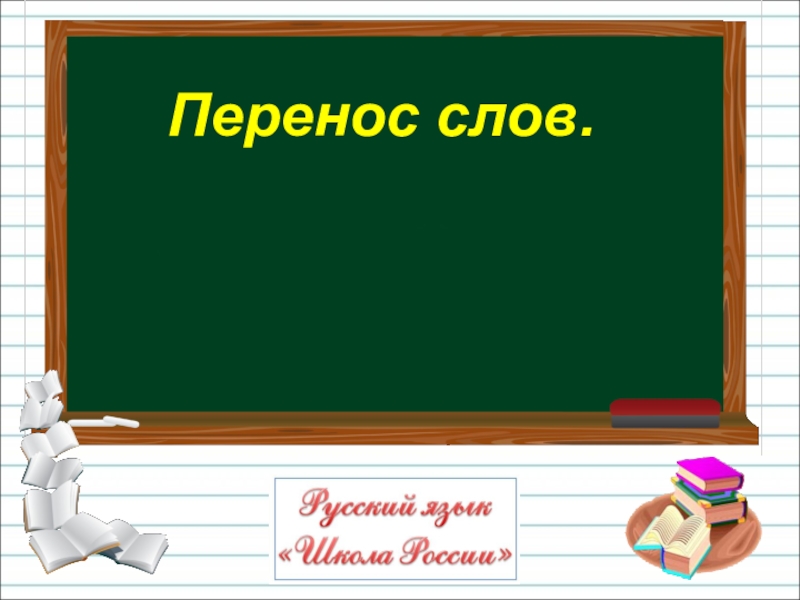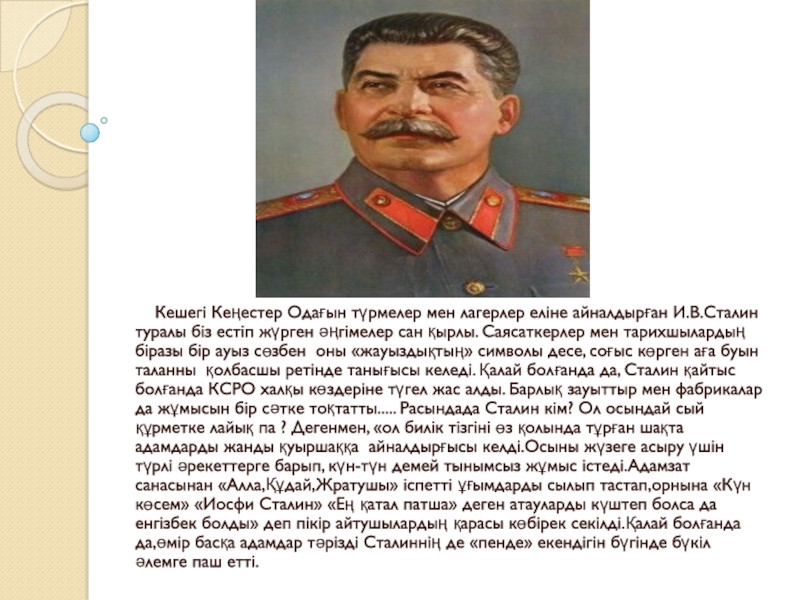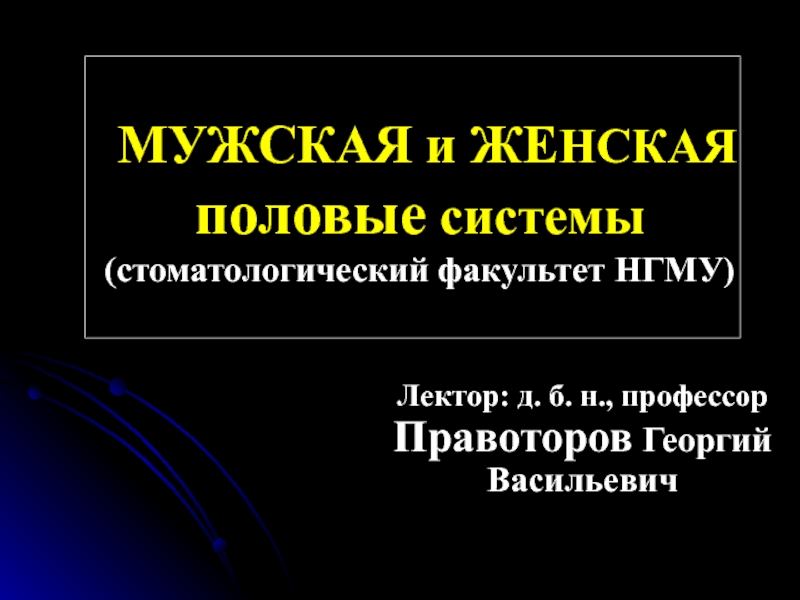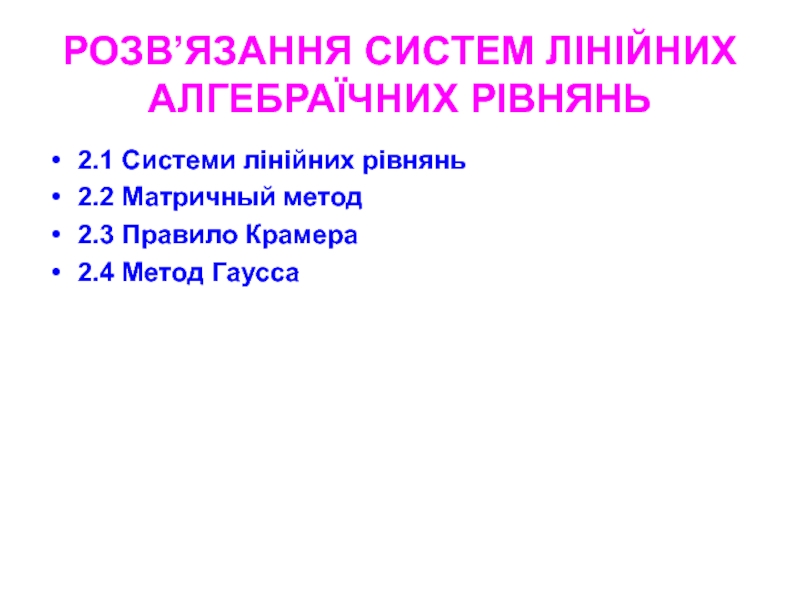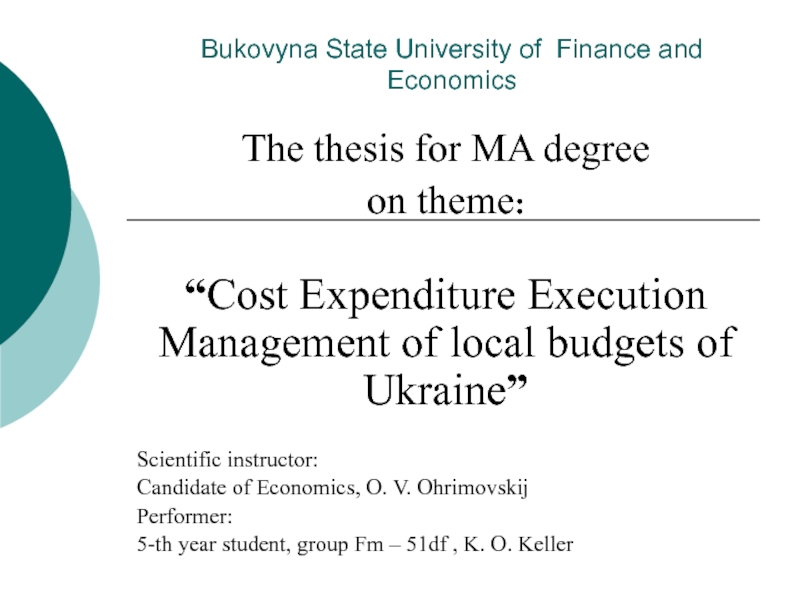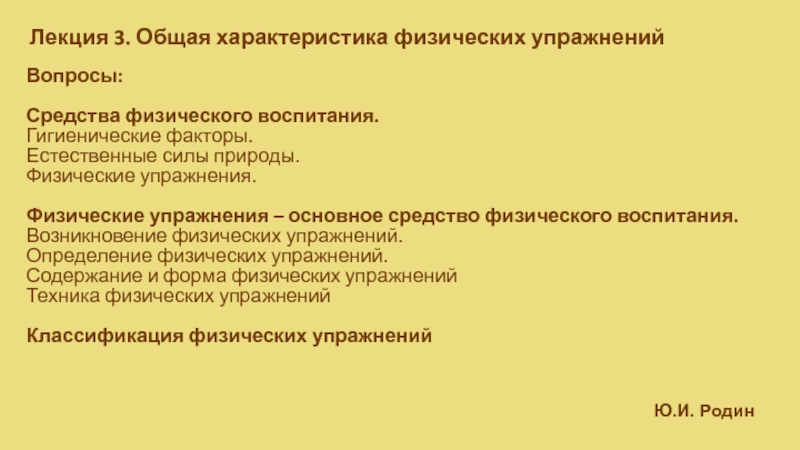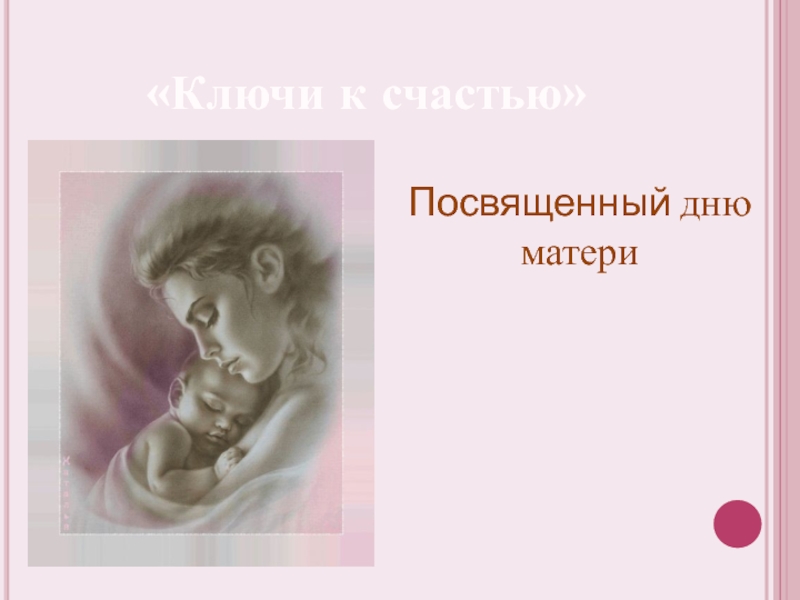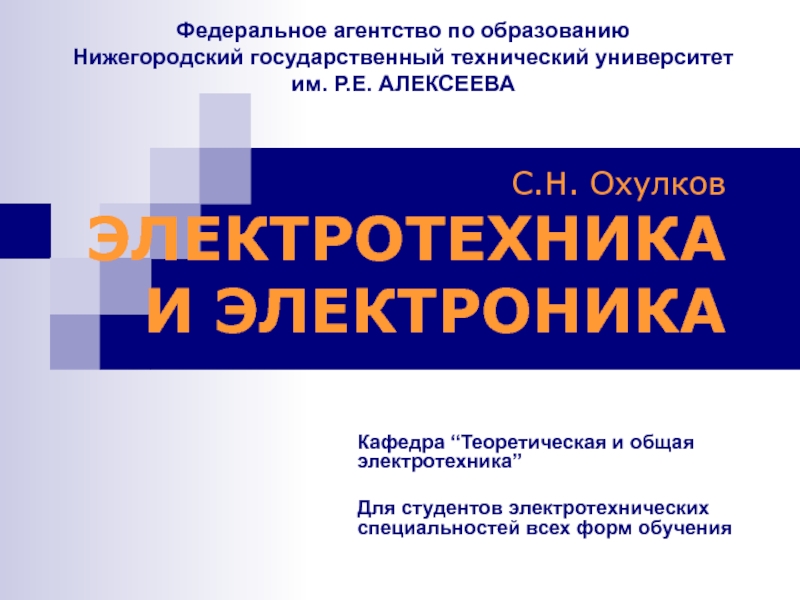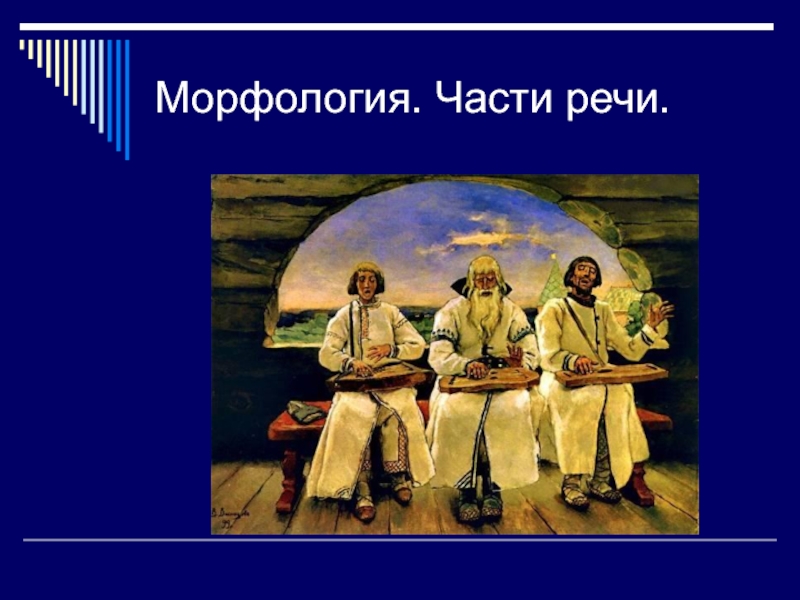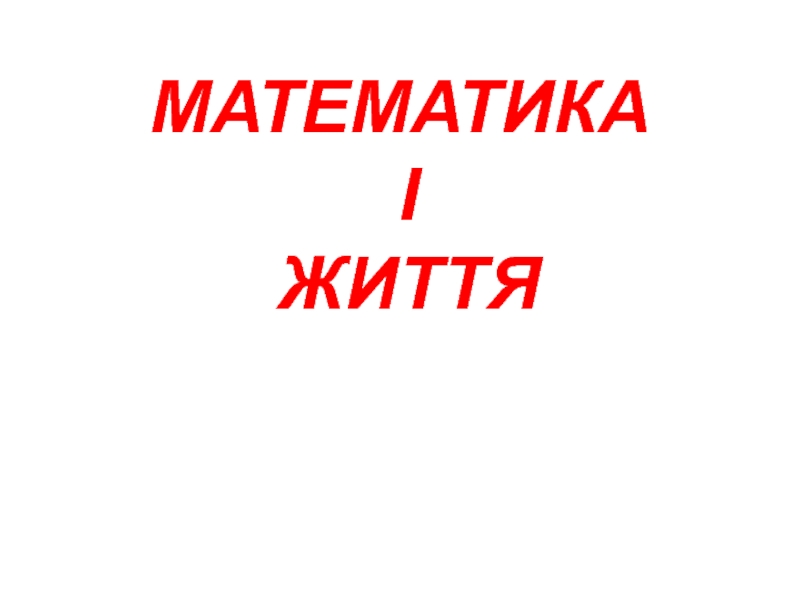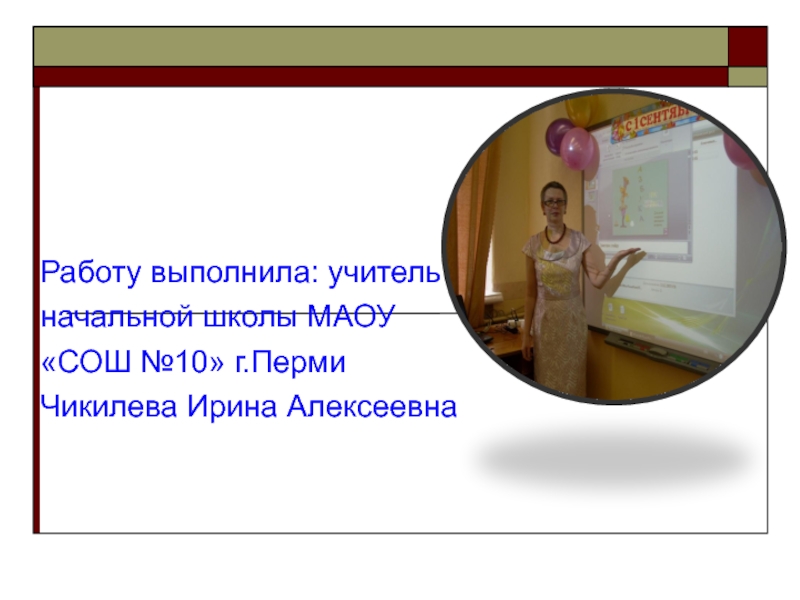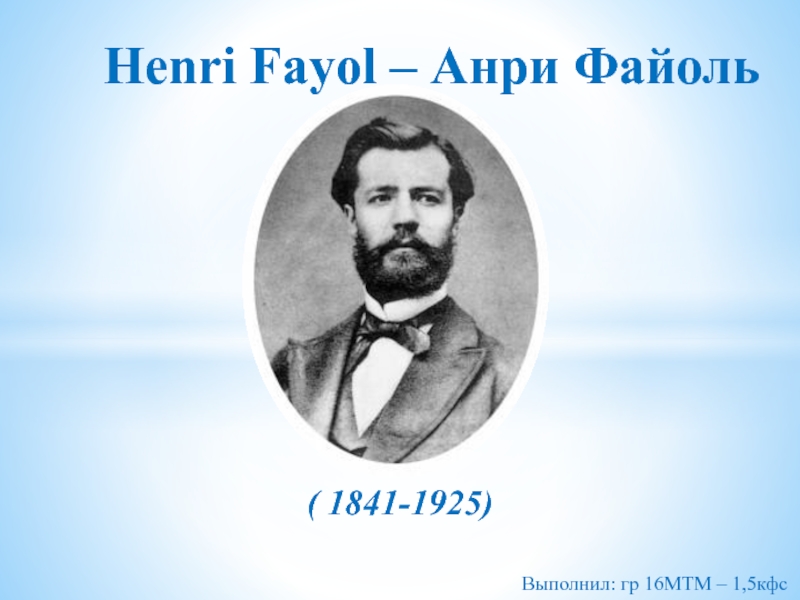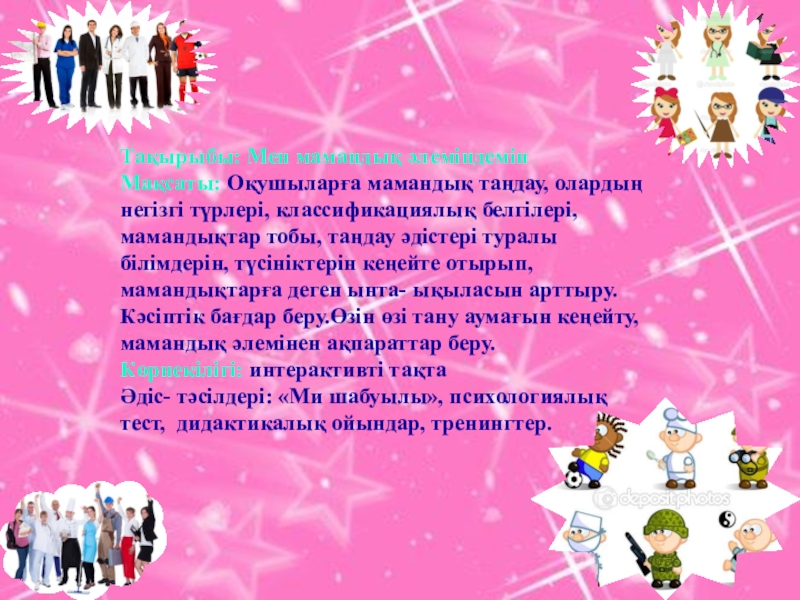Разделы презентаций
- Разное
- Английский язык
- Астрономия
- Алгебра
- Биология
- География
- Геометрия
- Детские презентации
- Информатика
- История
- Литература
- Математика
- Медицина
- Менеджмент
- Музыка
- МХК
- Немецкий язык
- ОБЖ
- Обществознание
- Окружающий мир
- Педагогика
- Русский язык
- Технология
- Физика
- Философия
- Химия
- Шаблоны, картинки для презентаций
- Экология
- Экономика
- Юриспруденция
1 variant: Spoken variety of language and its peculiarities. 2 variant: Written
Содержание
- 1. 1 variant: Spoken variety of language and its peculiarities. 2 variant: Written
- 2. STYLISTIC CLASSIFICATION OF THE ENGLISH VOCABULARYLecture 3
- 3. The word-stock of the English language is
- 4. The literary vocabulary consists of the following
- 5. The colloquial vocabulary falls into the following
- 6. Слайд 6
- 7. The common literary, neutral and common colloquial
- 8. Standard English vocabularyNeutral words are used in
- 9. kid – child – infantfather – parent
- 10. SPECIAL LITERARY VOCABULARYTermsbelong to the style of
- 11. SPECIAL LITERARY VOCABULARYb) Poetic and Highly Literary
- 12. SPECIAL LITERARY VOCABULARYс) Archaic, Obsolescent and Obsolete
- 13. SPECIAL LITERARY VOCABULARYс) Archaic, Obsolescent and Obsolete
- 14. SPECIAL LITERARY VOCABULARYс) Archaic, Obsolescent and Obsolete
- 15. SPECIAL LITERARY VOCABULARYd) Barbarisms and Foreignismsare words
- 16. SPECIAL LITERARY VOCABULARYe) Literary Coinages (Including Nonce-Words)Neologism
- 17. SPECIAL COLLOQUIAL VOCABULARYa) Slanglanguage of a highly
- 18. SPECIAL COLLOQUIAL VOCABULARYa) Slangto take stock in—'to
- 19. SPECIAL COLLOQUIAL VOCABULARYb) Jargonismsis a recognized term
- 20. SPECIAL COLLOQUIAL VOCABULARYb) JargonismsThe word grease means
- 21. SPECIAL COLLOQUIAL VOCABULARYb) JargonismsThe word grease means
- 22. SPECIAL COLLOQUIAL VOCABULARYb) JargonismsJargonisms do not always
- 23. SPECIAL COLLOQUIAL VOCABULARYc) Professionalismsare the words used
- 24. SPECIAL COLLOQUIAL VOCABULARYd) Dialectal Wordsin the process
- 25. SPECIAL COLLOQUIAL VOCABULARYe) Vulgar Words or Vulgarisms1)
- 26. SPECIAL COLLOQUIAL VOCABULARYf) Colloquial Coinages (Words and
- 27. Скачать презентанцию
STYLISTIC CLASSIFICATION OF THE ENGLISH VOCABULARYLecture 3
Слайды и текст этой презентации
Слайд 11 variant:
Spoken variety of language and its peculiarities.
2 variant:
Written variety
of language and its peculiarities.
Слайд 3The word-stock of the English language is divided into three
main layers: the literary layer, the neutral layer and the
colloquial layer.Слайд 4The literary vocabulary consists of the following groups of words:
1.
common literary;
2. terms and learned words;
3. poetic words;
4. archaic words;
5.
barbarisms and foreign words;6. literary coinages including nonce-words.
Слайд 5The colloquial vocabulary falls into the following groups:
1. common colloquial
words;
2. slang;
3. jargonisms;
4. professional words;
5. dialectal words;
6. vulgar words;
7. colloquial
coinages.Слайд 7The common literary, neutral and common colloquial words are grouped
under the term standard English vocabulary. Other groups in the
literary layer are regarded as special literary vocabulary and those in the colloquial layer are regarded as special colloquial (non-literary) vocabulary.Слайд 8Standard English vocabulary
Neutral words are used in both literary and
colloquial language
Common literаry words are chiefly used in writing and
in polished speech. Common colloquial words are always more emotionally coloured than literary ones.
Слайд 9kid – child – infant
father – parent – daddy
associate –
chap – fellow
get out – go away – retire
proceed –
go on – continue teenager – boy (girl) – youth (maiden)
start – get going – commence
Слайд 10SPECIAL LITERARY VOCABULARY
Terms
belong to the style of language of science.
But they may as well appear in other styles –
in newspaper style, in publicistic and practically in all other existing styles of language.Слайд 11SPECIAL LITERARY VOCABULARY
b) Poetic and Highly Literary Words
are used to
create the special elevated atmosphere of poetry. Sometimes they are
used for expressing irony.Слайд 12SPECIAL LITERARY VOCABULARY
с) Archaic, Obsolescent and Obsolete Words
Obsolescent words are
in the stage of gradually passing out of general use:
the pronouns thou and its forms thee, thy and thine; the corresponding verbal ending -est and the verb-forms art, wilt (thou makest, thou wilt); the ending -(e)th instead of -(e)s (he maketh) and the pronoun ye.Слайд 13SPECIAL LITERARY VOCABULARY
с) Archaic, Obsolescent and Obsolete Words
Obsоlete words are
those that have already gone completely out of use but
are still recognized by the English-speaking community: e. g. methinks ( = it seems to me); nay ( = no).Слайд 14SPECIAL LITERARY VOCABULARY
с) Archaic, Obsolescent and Obsolete Words
Archaic words are
no longer recognizable in modern English, words that were in
use in Old English, e. g. troth (= faith); a losel (= a worthless, lazy fellow). Archaic words are used in the creation of a realistic background to historical novels.Слайд 15SPECIAL LITERARY VOCABULARY
d) Barbarisms and Foreignisms
are words of foreign origin
which have not entirely been assimilated into the English language.
Most of them have corresponding English synonyms; e. g. chic (= stylish); bon mot (= a clever witty saying); en passant (= in passing); ad infinitum (= to infinity) and many other words and phrases.Barbarisms and foreign words are used in various styles of language, but are most often to be found in the style of belles-lettres and the publicistic style.
Слайд 16SPECIAL LITERARY VOCABULARY
e) Literary Coinages (Including Nonce-Words)
Neologism is defined as
“a new word or a new meaning for an established
word.”Examples are numerous: musicomedy (music+comedy); cinemactress (cinema+actress); and the already recognized blends like smog (smoke+fog); chortle (chuckle+snort). Such words are called blends.
Another type of neologism is the nonce-word, i.e. a word coined to suit one particular occasion:
"You're the bestest good one – she said – the most bestest good one in the world." (H. E. Bates)
“Sevenish” (around seven o'clock); “morish” (a little more) (A. Christie).
Слайд 17SPECIAL COLLOQUIAL VOCABULARY
a) Slang
language of a highly colloquial type considered
as below the level of standard educated speech, and consisting
either of new words or of current words employed in some special senseСлайд 18SPECIAL COLLOQUIAL VOCABULARY
a) Slang
to take stock in—'to be interested in,
attach importance, give credence to'
bread-basket—'the stomach' (a jocular use)
to
do a flit—'to quit one's flat or lodgings at night without paying the rent or board'rot –'nonsense!'
the cat's pyjamas—'the correct thing'
Слайд 19SPECIAL COLLOQUIAL VOCABULARY
b) Jargonisms
is a recognized term for a group
of words that exists in almost every language and whose
aim is to preserve secrecy within one or another social group.The following jargons are well known in the English language: the jargon of thieves and vagabonds, generally known as cant; the jargon of jazz people; the jargon of the army, known as military slang; the jargon of sportsmen, etc.
Слайд 20SPECIAL COLLOQUIAL VOCABULARY
b) Jargonisms
The word grease means 'money';
loaf means 'head';
a
tiger hunter is 'a gambler';
a lexer is 'a student preparing
for a law course'.Слайд 21SPECIAL COLLOQUIAL VOCABULARY
b) Jargonisms
The word grease means 'money';
loaf means 'head';
a
tiger hunter is 'a gambler';
a lexer is 'a student preparing
for a law course'.Слайд 22SPECIAL COLLOQUIAL VOCABULARY
b) Jargonisms
Jargonisms do not always remain on the
outskirts of the literary language. Many words have overcome the
resistance of the language lawgivers and purists and entered the standard vocabulary. Thus the words kid, fun, queer, bluff, fib, humbug, formerly slang words or jargonisms, are now considered common colloquial.Слайд 23SPECIAL COLLOQUIAL VOCABULARY
c) Professionalisms
are the words used in a definite
trade profession or calling by people connected by common interests
both at work and at home.Tin-fish (=submarine); block-buster (=a bomb especially designed to destroy blocks of big buildings); piper (=a specialist who decorates pastry with the use of a cream-pipe); a midder case (=a midwifery case); outer (=a knockout blow).
Слайд 24SPECIAL COLLOQUIAL VOCABULARY
d) Dialectal Words
in the process of integration of
the English national language remained beyond its literary boundaries, and
their use is generally confined to a definite locality.Lass 'a girl or a beloved girl‘
lad 'a boy or a young man‘
daft 'of unsound mind, silly‘
fash 'trouble, cares'
Слайд 25SPECIAL COLLOQUIAL VOCABULARY
e) Vulgar Words or Vulgarisms
1) expletives and swear
words which are of an abusive character, like 'damn', 'bloody',
'to hell', 'goddarn' and used now as general exclamations;2) obscene words.
Слайд 26SPECIAL COLLOQUIAL VOCABULARY
f) Colloquial Coinages (Words and Meanings)
Colloquial coinages (nonce-words)
unlike those of a literary-bookish character are spontaneous and elusive.
This proceeds from the very nature of the colloquial words as such. Not all of the colloquial nonce-words are fixed in dictionaries or even in writing and therefore most of them disappear from the language leaving no trace in it.to be the limit – 'to be unbearable'
